With the great value placed on space today, everyone is trying to make the most of what they have, especially in cities, and people are gravitating towards the yesteryear tradition of multiple generations living under the same roof. With these trends, basements, once musty storage areas, are being turned into finished rooms and even complete living units—bathroom, kitchen, and all.
Maybe you’ve found your way to this post because, like me, when you were researching finished basements, you kept coming across the term “illegal kitchen”, and you’re interested/worried about why it was coming up so often when putting a kitchen in your basement is exactly what you planned to do.

It is not illegal to have a basement kitchen if it is built with the applicable valid permits to ensure that the construction, plumbing, electrics, and ventilation are up to code. If the kitchen is the second one in the home, the home may need to be re-zoned. If it is not re-zoned, the kitchen is illegal.
Basement Kitchen Not Illegal
Having a kitchen in the basement can be amazing.
You can host your friends and family in a spacious, kitted-out entertainment area, complete with an oven for nachos or delicate canapés (depending on your style).
You can set your aging parents up with a place in your home, while still providing them with independence. You can do the same for your child who has reached adulthood but needs a little help getting on their feet in this expensive world. You can even earn some extra income by leasing out the basement as an apartment.
Whatever your reason, if you are thinking of building a kitchen in your basement then safety should be your number one priority. The reason for this is the location. In comparison to other parts of your home, your basement gets very little natural light and airflow, particularly if it is windowless.
Ventilating a regular windowless basement is difficult enough (but not impossible!), but a basement that is contending with heat-producing appliances, fuel-burning stoves, and gaseous cooking by-products is a whole different ball game.
There are international and local codes governing ventilation in a basement and a kitchen, and there are also international and local codes that regulate basement and kitchen plumbing, electrics, external access or emergency exits, etc.
So, before planning a kitchen in the basement, you need to find out everything about the rules and regulations surrounding this addition. Your kitchen must meet all the code requirements for safety or else it will likely be considered an illegal kitchen.
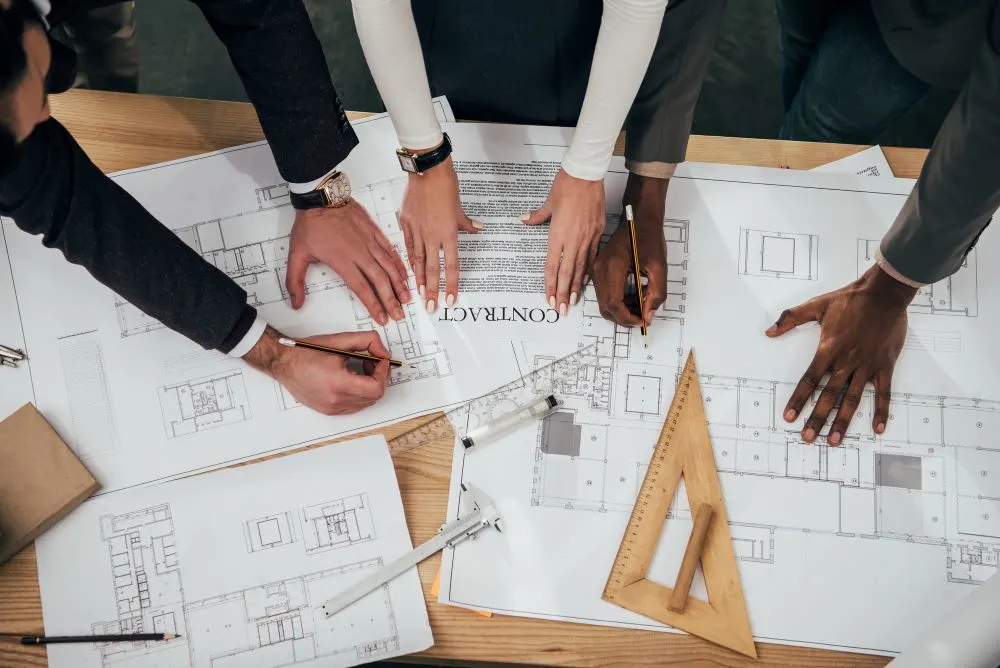
In order to finish your basement and install a kitchen, you will need a permit from the concerned authorities. It is one of the most straightforward ways to make sure your basement kitchen is code-compliant. When you apply for a building permit, they will point out all the violations in your plans and can guide you to make the kitchen as safe as possible.
Getting a permit will also ensure that there are no other laws, such as zoning laws, that you are breaking by installing a kitchen in your basement.
Some Basement Kitchens Are Illegal
Now that we know basement kitchens are not illegal and all you need is a permit and code compliance, why does the term “illegal kitchen” keep cropping up?
Quite simply, it is difficult to get a permit to install a kitchen in a basement, so many people do not try.
There are two main reasons why this is difficult. The first is that correct ventilation is often tricky to achieve, and the second reason has to do with what I touched on at the end of the previous section: zoning laws. The first reason is more easily overcome than the second, so I want to focus on the zoning laws.
A single-family dwelling unit is classified as such largely because there is only one kitchen. These days, having multiple bathrooms, bedrooms, and even more than one sitting room in a family home is common. But how many houses do you know that have two kitchens?
Building codes and laws consider a house to be a multi-family dwelling unit with the addition of a second kitchen. This means that its zoning and taxing changes as well as other rules and regulations applicable to the building. If you are still operating under the rules and regulations for a single-family dwelling unit but you have two kitchens, then the second kitchen is illegal.
It will also be illegal because the chances are high that it will be unpermitted. Your state/county/municipality will not grant you a building permit if are no provisions to re-zone the house appropriately.
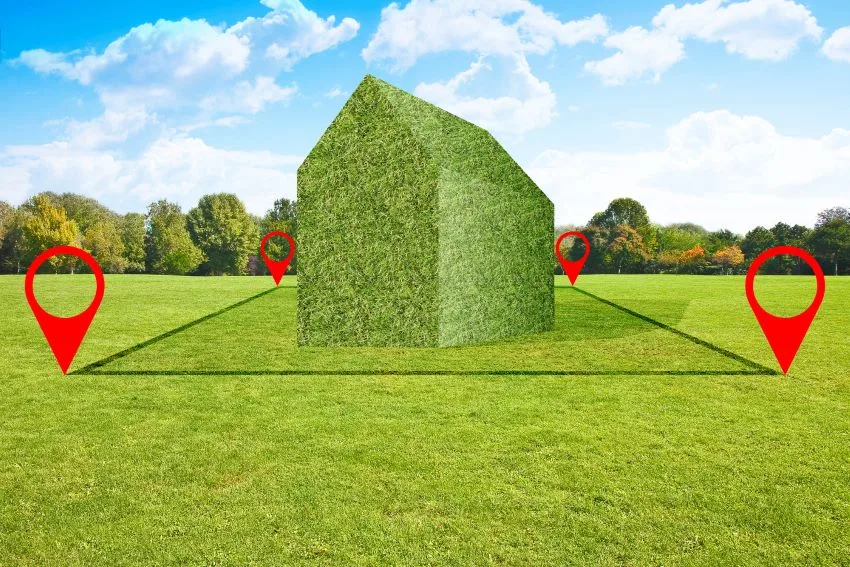
Whether you are shifting your kitchen in the basement or building a second one, it’s always better to check the zoning of your property. Before planning for a kitchen in the basement, find out from the right people about zoning.
In some areas, you might have to make your home suitable before it can re-zoned. You might also be given a temporary zoning permit which will only be approved after you make the necessary renovation to meet the zoning requirements.
If your only kitchen is going to be installed in the basement, you are far more likely to get a permit for this than if your kitchen in the basement would be the second kitchen in your home.
I do want to note here that it is not guaranteed that you will have to re-zone your house if you add a second kitchen, especially if that kitchen is not being used by someone who is paying you rent, but it is definitely a consideration you should factor into your plans.
Rules to Keep in Mind
Permit
Applying for a building permit is the most vital step in your plan of action. You can build the best basement kitchen but if it does not have the necessary permit and is not according to the building codes, then your kitchen is illegal. You can get into lots of legal trouble and may have to remove the whole kitchen!
If you are making structural changes like adding or removing a wall or anything that affects the foundation then you will have to get a permit and make sure the renovation meets all the safety codes.
You might have to get separate permits for making building, electrical, plumbing, and mechanical and provisions. So before moving forward, find out everything.
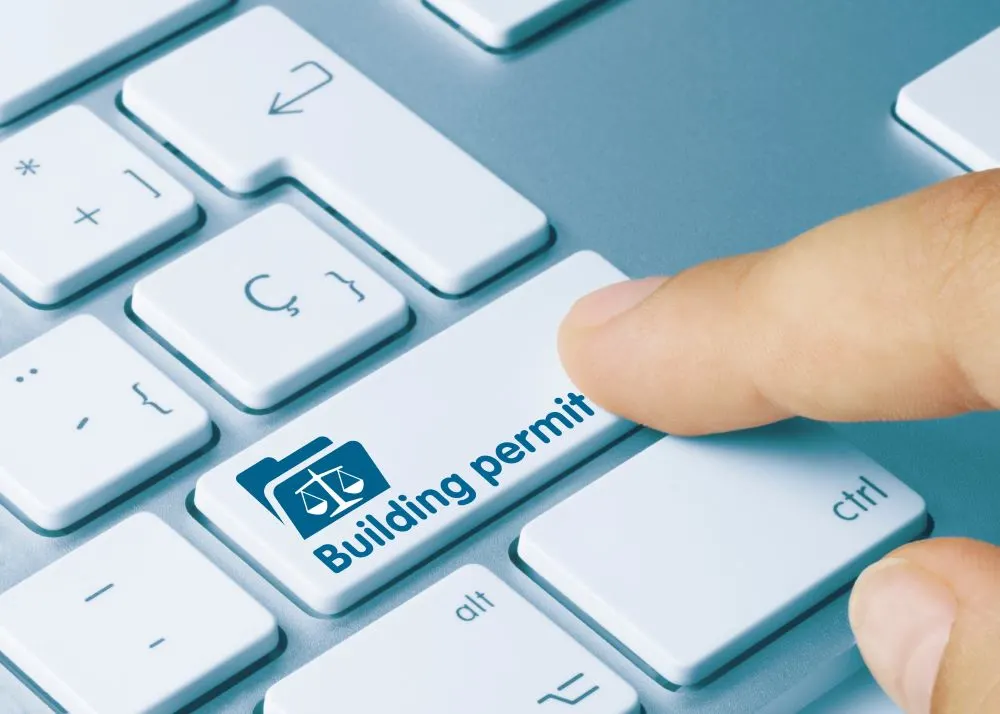
Egress Points
The IRC and your local building code make it mandatory to have well-defined egress points in your basement. So that, in case of emergency you can get out safely. While building a basement kitchen, you must ensure that the egress points are as per the codes in terms of location, size, swing direction, material, etc.
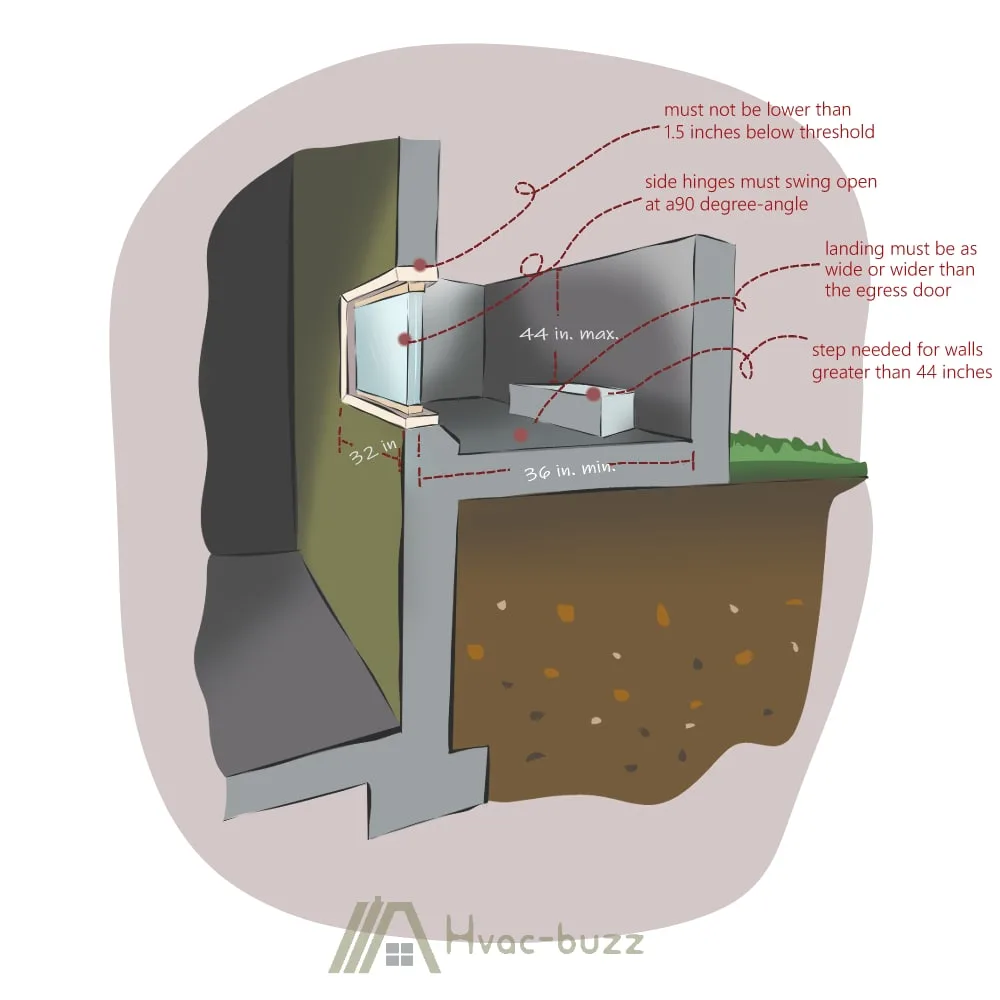
Proper ventilation
As mentioned before, compared to the rest of your home, the natural ventilation is diminished in a basement. While building a kitchen, you must make the necessary provision for sufficient ventilation so that the cooking by-products, etc., can be exhausted quickly. In a basement kitchen, a range hood becomes necessary.
Section M1503 of the International Residential Code (IRC) explains that all domestic cooking exhaust equipment must discharge to the outdoors through a duct that is air-tight with a smooth interior surface and shall be equipped with a backdraft damper.
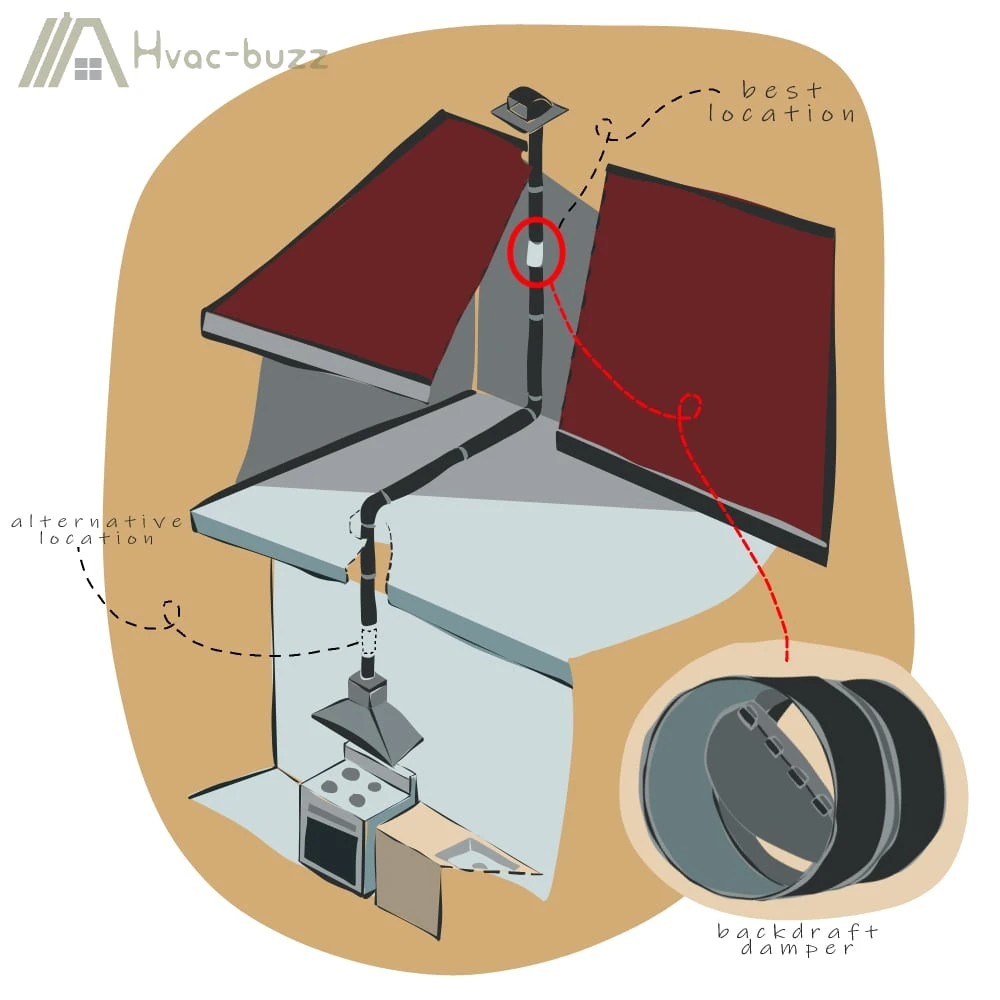
Plumbing
It’s always better to hire a licensed plumber to install the plumbing in your basement kitchen. The plumbing must be in accordance with the plumbing permit (and therefore codes), which regulates the water inlets and drainage in the basement.
Electrical
Your plans for lighting and electrical fixtures in the basement kitchen must be approved before your install them.
The electrical permit governs electric safety as well as energy consumption. The permit will also dictate circuit capacity, wiring, outlet numbers and locations, etc.
Mechanical
In some areas, you might have to get a special mechanical permit that covers heating and ventilation amenities.
If there’s a permit, then you will have to make sure that any kind of installation, additions, and replacements related to venting exhaust fans, air-conditioners, heaters, furnaces, chimneys, windows, etc., meet the standards mentioned by the code.
Pros and Cons of Basement Kitchens
Pros
- You and I will both agree that we can always do with some extra space. Having the kitchen in the basement creates additional space that can be used in various ways. With the kitchen downstairs, you now have the space to entertain more people.
- A basement kitchen ensures that the main part of your house is saved from the various cooking smells.
- A kitchen in the basement will only increase the rent value if you are planning to rent out your basement. Your tenant will have their private cooking space and will be saved the trouble of using the main house.
- A code-compliant basement kitchen that has all the necessary permits will increase the resale value of your property. If the kitchen looks good, then chances are, your home will be in demand in the real estate market.
Cons
- One of the primary functions of having a basement is storage. So, when you construct a kitchen in the basement then you are left with hardly any storage space. Then you end up with no choice but to store some things upstairs.
- It is difficult to achieve good ventilation in a basement.
- Your basement has a high moisture level and is usually cooler than the rest of your home. So, your kitchen might always feel damp and cold. Any damp place leads to the creation of mold and mildew. Since you cook food in the kitchen, it must be always clean, so you might end up with a fight on your hands.
Sources
https://homeguides.sfgate.com/need-planning-permission-move-kitchen-another-room-85236.html
https://www.grundig.com/ktchnmag/blog/why-you-should-consider-a-basement-kitchen/
https://nvkitchenandbath.com/benefits-of-having-a-basement-kitchen/
https://www.juliewilliamsdesign.com/considerations-for-adding-a-kitchen-to-your-unfinished-basement
